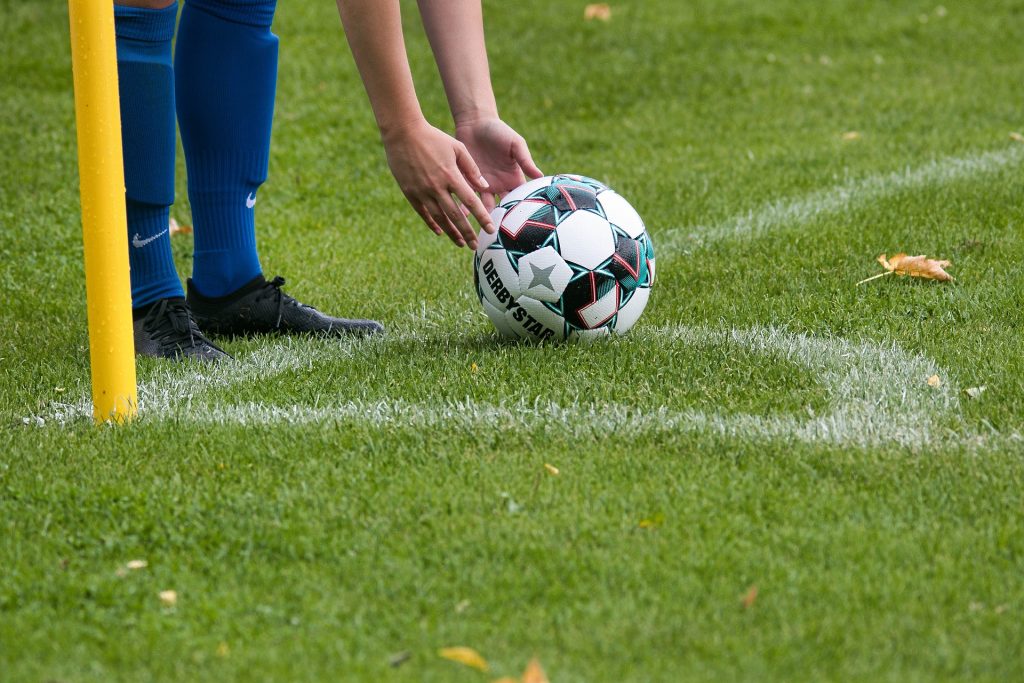With one hundred percent certainty, only the betting provider wins on a sports bet. A Berlin mathematician knows an option that promises surefire profits as long as only a few people know about it.
Actually I should not write about it. I should keep to myself that I was at the Technical University in Berlin and met a mathematician there who promised me what is actually impossible: a bet in which you cannot lose, but only win.
The ambience matches what Wiebke Wittmüß tells us. The mathematics graduate is sitting in a run-down concrete block on the Straße des 17. Juni in Berlin and talks about the surefire sports bet. You’ve heard this kind of thing many times before: the investment of money with utopian high returns without any risk – usually offered by shady types in gloomy back rooms.
Sports betting with guaranteed profits already has a certain tradition in this city. A few kilometers away in a Charlottenburg café, not even two years ago, shady mafiosi were concocting game results that Bundesliga referee Robert Hoyzer then had to implement by blowing his whistle, squeezing his eyes shut and drawing his cards. Hoyzer received a plasma TV for his services and was later convicted.
The 28-year-old Wittmüß does not have to fear anything like that. She doesn’t need Hoyzer or a bribable goalkeeper – mathematical acumen is enough for her. A friend gave her the idea of the hundred percent sports bet. “It was about a boxing match between a German and an Australian,” she explains.
Her friend tracked the betting odds at Betandwin and at an Australian online betting agency. And lo and behold: In Germany, the majority bet on a victory for the German boxer, while in Australia, the majority bet on the Australian. The betting odds were correspondingly different. Among insiders, this procedure is known as Sure Bets or Arbitrage.
Wittmüß did not check the matter himself on the net. During random checks in various online betting offices, I did not come across any such case. The odds differed only minimally. But never mind, that’s too much practice. Mathematicians are concerned with something else.
175 percent return!

This effect that her friend had reported, Wittmüß thought to herself, should be wonderful to exploit. “You bet simultaneously in Germany on the victory of the Australian and in Australia on the triumph of the German.” Whatever the outcome of the fight, the winner is always the betting machine.
A numerical example: Let’s assume that the odds at the German betting office are 4 to 1.1 for the Australian and 3.5 to 1.25 for the German in Australia. You then bet one euro in Germany on the Australian and one in Australia on the German. That costs exactly two euros. Either 3.5 or 4 euros are won – making a return of 175 or 200 percent respectively.
Stockbrokers who promise such things are considered windy. Wittmüß seems anything but windy. She knows financial mathematics inside out, as well as robust optimization.
Isolated betting communities
The betting trick only works, of course, explains Wittmüß, because parallel games are played in two communities isolated from each other. In Germany, the Australian is more of a nobody; down under, hardly anyone knows the German. “When all people are well informed, there is no longer a sure win.” Indeed, hundreds of boxing fans suddenly betting on their own man’s defeat would depress the odds – the sure win would be passé.
The principle of a sure win can also be applied to soccer betting – but with the special feature that kickers sometimes also tend to be unable to make up their minds and part with a draw. This is rather unattractive from a mathematical point of view.
“I could, for example, bet on the Germany vs. Poland match in a German sports club and in a Polish one at the same time,” says Wittmüß. The respective preferences should make for different betting odds, which the knowledgeable betting layman then exploits ice-cold.
Profiting from small odds differences

In fact, internal bets of clubs would be particularly well suited for surefire sports betting, because they tend not to be so closely linked to Internet odds. Incidentally, slightly differing odds are also enough for a safe return – they don’t have to be opposite, as in the case of the two boxers.
An example: At one betting office, the odds are 4.0 to 1.2 for team A to beat team B. The odds are not necessarily the same. At another provider, or at one’s own sports club, people are less optimistic – the odds are slightly smaller, for example 2.5 to 1.5. In both cases, majorities bet on A winning – but with different odds.
Surprisingly, this is enough for a safe bet: you simply bet 1.5 euros on team B with the first provider and 4.0 euros on team A with the second. Whatever happens, the payout will be exactly 1.5 * 4.0 = 6.0 euros, the stake is 4.0 + 1.5 = 5.5 euros. Makes 50 cents profit after all – for sure.
If you like it better as a formula: The profit in the amount of a * b must be larger than the stake of a + b. Of course, this can only occur in two different betting systems isolated from each other, because otherwise the betting provider would make losses. So whoever finds such isolated systems had better not make much fuss about it, bet some money and wait quietly for the sure win.
The Berlin mathematician Wittmüß has other things in mind. “I’ve never bet before, I’m much too lazy.”
As a numerator, I can only agree with that. Instead of spending hours in dozens of betting shops comparing odds, I prefer to play volleyball or go jogging. Always hoping for a sure (weight) loss.
Correction: The first version of this text incorrectly stated that Wiebke Wittmüß had discovered the trick of the sure bet. This is not true, it was a misunderstanding. Sure Bets or Arbitrage have been known for a long time. Special websites observe the differences in betting behavior and offer sure bets.
